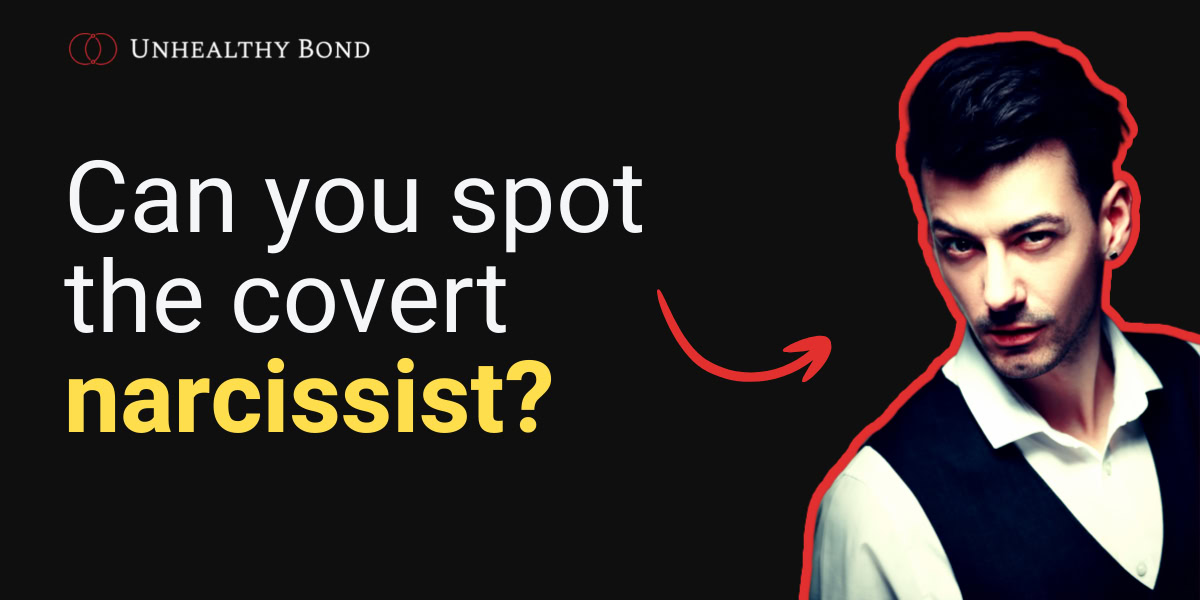How well do you understand narcissistic behavior? Could you identify these traits in the people you interact with daily?
Narcissism isn’t always as loud and grandiose as you might think. In fact, covert narcissism is more prominent than most people realize.
“The covert narcissist is much more subtle than the classic narcissist,” says Dr. Phil McGraw. “They’re not as brash, they’re not as loud, they’re not as overt about what they want. But make no mistake—just like the classic narcissist, the covert narcissist wants the same things, and they have the same traits and characteristics.”
So, how do you know if someone is a covert narcissist? Watch for these signs:
Complete Disregard for Your Opinion
Have you ever expressed your thoughts or feelings, only to have them dismissed or challenged every time? This might be more than a simple disagreement.
Dr. Les Carter cautions against taking this behavior lightly: “When narcissists repeatedly refute your input, it is a major red flag that says you’re dealing with a very troubled and fearsome kind of an individual.”
When every conversation feels like a battleground where your perspective holds no weight, you could be encountering a covert narcissist.
They are not just hard to convince; they often possess a complete disregard for your opinion. This is a subtle sign of a deeper issue. It’s not about winning an argument. Instead, it’s a systematic approach to keep you second-guessing yourself.
Pay attention to this pattern: if you find your voice consistently stifled and your valid points perpetually undermined, you may be dealing with a personality that sees your input as a threat, rather than a contribution.
Playing the Victim
How often have you heard someone attribute their current behavior to a troubled past? While it’s natural to be shaped by our experiences, it becomes manipulative when someone perpetually plays the victim.
According to coach Michelle Lee Nieves, “The narcissist likes to play the victim and have you focus on the fact that they had a rough childhood, or because of what they went through, they are that way.” This tactic diverts attention away from their actions and instead pulls at your empathy.
“They play the victim, and there’s never any reciprocity with these people,” said Dr. Phil. “It’s always one way. They will suck you dry.”
When interactions with someone are consistently one-sided, with their stories of personal hardship being used to excuse their behavior and avoid accountability, it’s a clear sign of covert narcissism. They exploit empathy and generosity, without offering the same in return, often leaving you emotionally depleted.
If your compassion is met with constant tales of woe that serve to justify their actions, it’s time to evaluate the dynamic critically.
False Trustworthiness
Have you ever formed a connection with someone who seemed to take an extraordinary interest in you? They might have offered help or made you feel as though no one has ever cared quite like they do. However, Dr. Les Carter warns, “Covert narcissists are really skilled at giving you the impression that they’re into you when in fact, no, they’re not.”
He further explains the deceptive nature of their engagement: “They’re dishonest though in a trustworthy seeming kind of way… by doing nice favors for you. They can be very friendly in general and can be very charming… They can be very smart and can give you some advice and be very helpful… Sometimes they’ll actually ask you about your day and you can think, wow, this is really nice.” This calculated charm is not a genuine interest but a way to gain your trust.
Eventually, the covert narcissist will discard you when they no longer have a use for you. “To feel thrown away by another person is an awful experience, but yet it is sort of a universal part of the narcissistic relationship,” said Dr. Ramani Durvasula.
This cycle of drawing you in and discarding you, undermining the trust and camaraderie gradually built, is indicative of a covert narcissist’s interaction. They wear a guise of sincerity, but in reality, it’s a one-way street, and once they have what they want from you, your needs and feelings become irrelevant.
Be cautious of those who offer their help without any clear reason—it may very well be a strategic move to ensure their needs, not yours, are met.
Is Someone in Your Life a Narcissist?
If you suspect that someone in your life exhibits these narcissistic traits, take a step back and assess your interactions with them.
“Now, they won’t confront you about it,” said Dr. Phil. “They will be passive aggressive about it, but it’s just as damaging.”
Remember, the signs can be subtle, but the impact on your well-being is significant. Prioritize your mental and emotional health, and don’t hesitate to seek support.
“Self-compassion is like kryptonite against the charms of the narcissist,” said Dr. Ramani Durvasula. By practicing self-awareness and self-care, you can shield yourself from their damaging influence and preserve your sense of self.
